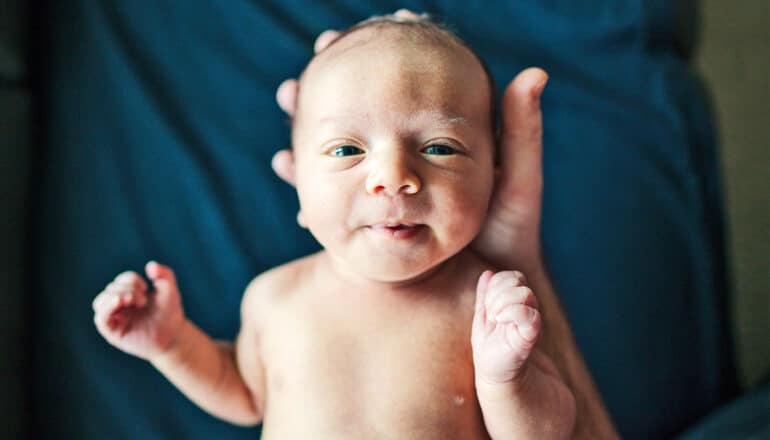
Based on recent studies measuring babies’ brain activity and eye movement, the case for consciousness in newborns is increasingly strong, according to a new article.
Babies blink, cry, and yawn—and a few weeks into their lives, they might smile. But do these movements mean that newborns have conscious experiences of perceiving the world around them? Or are these processes happening unconsciously?
In recent years, scientists have paid increasing attention to consciousness—our subjective experience of the mind and the world. They’ve studied consciousness in adults, in people with mental disorders, and even in animals. But until recently, consciousness in newborn infants has been poorly understood.
The new evidence for consciousness relies on methods that creatively measure brain activity in newborns, which is not an easy task. Infants can’t respond to verbal cues or directions and sleep quite a bit, making their minds difficult to study.
“Neuroscientists often describe the infant brain and behavior as very noisy—it’s difficult to extract information, and what’s going on is not as clear as in adults,” says Claudia Passos-Ferreira, assistant professor of bioethics at the New York University School of Global Public Health and author of the new article in the journal Neuron.
Passos-Ferreira’s article discusses the novel ways that scientists gauge whether babies are conscious: measuring brainwave responses to unexpected sounds, using imaging to evaluate the brain’s networks, and tracking eye movements such as blinks and pupil changes to see how babies react to different stimuli.
The studies show that cognitive processes related to consciousness may begin functioning in babies earlier than had been previously thought.
Here, Passos-Ferreira talks about what the latest research reveals about when consciousness emerges in human development:
The post Are newborns conscious of the world around them? appeared first on Futurity.
from Futurity https://ift.tt/TviWEua
No comments:
Post a Comment